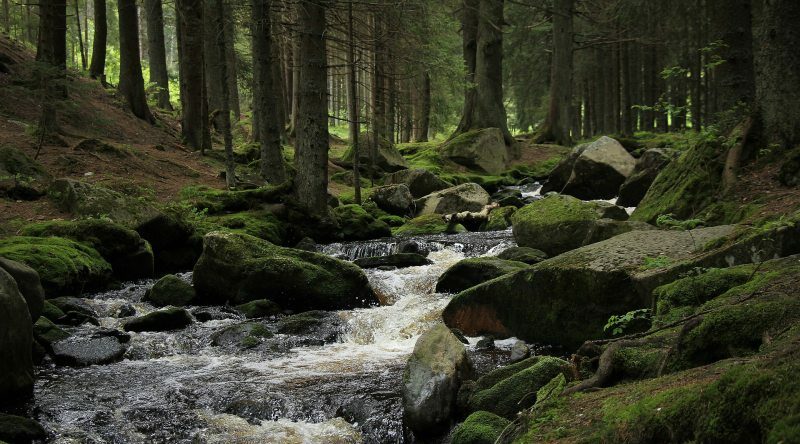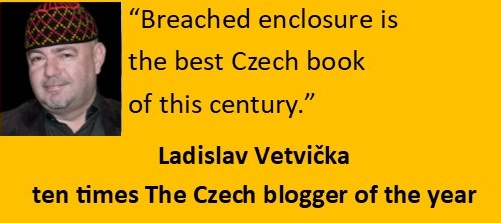“The Green Deal could be responsible for the EU’s loss of competitiveness, the impoverishment of families, rising unemployment, astronomical energy prices, the collapse of industry and, ultimately, the destruction of the environment it intends to protect.”

Mr. President, Excellency, ladies and gentlemen!
In recent years, environmental protection has been replaced by the fight against climate change. The European Union is striving to achieve zero emissions by 2050, as set out in its Green Deal. The thirteen legislative proposals entitled ‘Fit for 55’ go much further than what the European Union has adopted and agreed.
Yet it is only the EU, with its roughly 9% share of global CO2 production, that wants to take the drastic step of reducing its carbon footprint. However, the EU cannot achieve anything without the participation of the biggest polluters, such as China or the US, which are responsible for 27 and 15 per cent of global CO2 emissions respectively.
Due to inappropriate legislation and speculation, the price of emission allowances has spiralled out of control, resulting in soaring electricity prices.
Despite these facts, the European Commission continues to put forward dangerous proposals, such as the proposal to ban internal combustion engines in 2035 or to introduce emission allowances for transport and individual housing. Due to inappropriate legislation and speculation, the price of emission allowances has spiralled out of control, resulting in soaring electricity prices. As a result, and in the context of rapidly rising natural gas prices, driven mostly by power games between individual states, many Europeans may be at risk of energy poverty.
 Instead of negotiating long-term contracts with Russia, European politicians are eager to block the transit capacity of the Nord Stream 2 and Opal pipelines, citing fears of future EU dependence on Russia. Ladies and gentlemen, this may be news to you, but we are already dependent on Russian natural gas and will continue to be for at least the next 20 to 30 years. There is, frankly, no other way, because the EU needs 400 billion cubic metres of natural gas a year, but only produces 50 billion.
Instead of negotiating long-term contracts with Russia, European politicians are eager to block the transit capacity of the Nord Stream 2 and Opal pipelines, citing fears of future EU dependence on Russia. Ladies and gentlemen, this may be news to you, but we are already dependent on Russian natural gas and will continue to be for at least the next 20 to 30 years. There is, frankly, no other way, because the EU needs 400 billion cubic metres of natural gas a year, but only produces 50 billion.
The ‘Fit for 55’ proposals do not take into account the conditions and dispositions of individual Member States or the ratio of industry to GDP. The European Commission is not presenting any impact assessment of these proposals or any opposing views. We do not know whether these targets are too ambitious. We have no idea how much such a transformation will cost, nor whether we can afford it. This is not an agreement, but an ideology. Without answers to these questions, the Green Deal will become European green suicide.
Ladies and gentlemen, this may be news to you, but we are already dependent on Russian natural gas and will continue to be for at least the next 20 to 30 years.
It is absolutely essential for individual Member States to choose their own energy mix to achieve carbon neutrality. The Czech Republic cannot rely solely on renewable energy – our landscape and climatic conditions simply do not allow it. The only means by which the Czech Republic can achieve zero CO2 emissions are nuclear energy and natural gas. Nuclear energy, in particular, represents a clean, safe, reliable and inexpensive source of electricity, and the EU Member States and the European Commission should recognise this.
The Green Deal may have huge social, economic, political and geopolitical costs. Costs that could cause enormous tensions in society and among allies, open the door to radicals and threaten our democracy. The Green Deal could be responsible for the EU’s loss of competitiveness, the impoverishment of families, rising unemployment, astronomical energy prices, the collapse of industry and, ultimately, the destruction of the environment it intends to protect.
Without answers to these questions, the Green Deal will become European green suicide.
The Green Deal simply wants too much, too soon, at any price. Given the current market situation, the rising energy and commodity prices, the disruption to supply chains and the shortage of goods, I believe that it is essential to set a realistic strategy for implementing the Green Deal – we need to calculate its costs, assess its impact, set individual targets and give EU Member States maximum flexibility.
This conference is indeed timely. Recent developments are an urgent signal to us that we need to start approaching green policy without ideology, critically and rationally, and we need to push for change gradually and in an economically, politically and socially sustainable way.
Thank you for your attention.
(Andrej Babis´peech at the UN climate conference)

